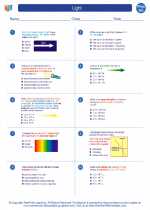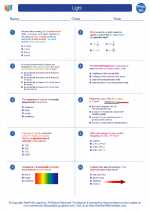Quantized Energy
Quantized energy refers to the concept that energy can only exist in discrete, specific amounts. This principle is a fundamental aspect of quantum mechanics, the branch of physics that deals with the behavior of matter and energy at the atomic and subatomic levels. In classical physics, energy is considered continuous and can take on any value. However, in the quantum world, certain physical systems can only possess energy in specific, quantized amounts.
This idea was first proposed by Max Planck in 1900 when he introduced the concept of quantized energy to explain the behavior of blackbody radiation. Planck suggested that the energy of electromagnetic radiation is quantized, meaning it can only be emitted or absorbed in discrete packets called "quanta."
The quantization of energy has numerous implications for the behavior of particles at the atomic and subatomic levels, leading to phenomena such as quantized energy levels in atoms, the wave-particle duality of light, and the behavior of electrons in semiconductor materials.
Study Guide:
- Understand the concept of quantization: Familiarize yourself with the idea that energy can only exist in specific, discrete amounts rather than being continuous.
- Learn about Planck's constant: Understand the significance of Planck's constant (h), which relates the energy of a photon to its frequency and is a fundamental constant in quantum mechanics.
- Explore quantized energy levels in atoms: Study how the quantization of energy leads to the existence of discrete energy levels in atoms, which in turn gives rise to phenomena such as atomic spectra and the behavior of electrons in atoms.
- Consider applications in modern technology: Research how the concept of quantized energy is utilized in modern technologies such as semiconductors, lasers, and quantum computing.
- Review quantum mechanical models: Look into the mathematical and conceptual frameworks of quantum mechanics, including the Schrödinger equation and wave functions, to gain a deeper understanding of quantized energy.
By mastering the concept of quantized energy, you'll gain insight into the foundational principles of quantum mechanics and its impact on our understanding of the behavior of matter and energy at the smallest scales.
.


